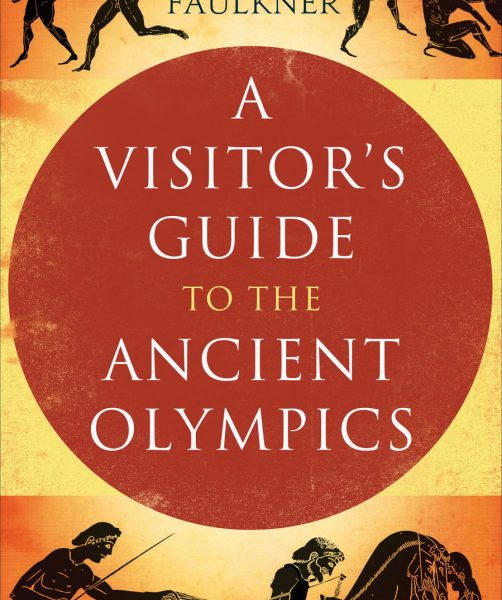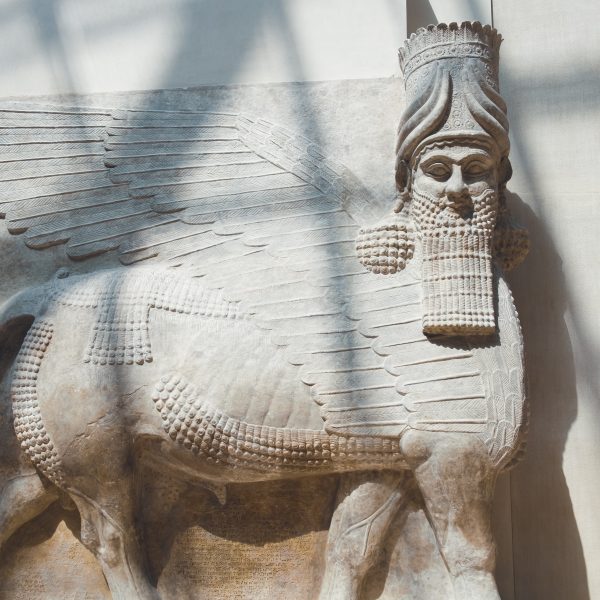London Olympics 2012: Whose Games Are They Anyway?
Neil Faulkner is the author of A Visitor’s Guide to the Ancient Olympics, now available from Yale University Press. With only 30 days left before the Opening Ceremony of the 2012 Olympic Games, we thought to share some insight into the side of the Games you won’t see, even those as they existed 2,400 years ago, never to be experienced quite the same way again. In this regular series for the London Yale Books Blog, Faulkner comments on the London 2012 Olympics in the light of the wisdom (or lack of it) of the ancients. This post, which addresses the controversy over the distribution of tickets, asks to what extent today’s Olympics preserve the democratic principles of the ancient Games.
Neil Faulkner—
The spectacle of Seb Coe, the head of LOCOG, the body organising the London 2012 Games, refusing to answer legitimate questions from the capital’s elected political representatives [March 7th] was a bit of a shocker.
At issue was the proportion of tickets for top events like the 100 metres that had been sold to the public. Overall, three-quarters of tickets have gone on general sale, but the proportion seems to plummet to around a third for the most popular competitions.
Coe refused point-blank to reveal the information. Dee Doocey, chair of the London Assembly’s economy, sport, and culture committee, could not get an honest answer. The two were head-to-head, one trying to justify cover-up, the other demanding democratic openness.
 Accusing Coe of being obsessed with secrecy, Doocey said, “There is nothing at all to stop you from publishing it [the ticket allocations] if you have got nothing to hide. You are not transparent. You are the least transparent organisation I have ever come across in eight years I have been on the London Assembly.”
Accusing Coe of being obsessed with secrecy, Doocey said, “There is nothing at all to stop you from publishing it [the ticket allocations] if you have got nothing to hide. You are not transparent. You are the least transparent organisation I have ever come across in eight years I have been on the London Assembly.”
Coe and the rest of his committee are unelected appointees. Doocey and the London Assembly members are the elected representatives of the people.
Corporate sponsors have contributed £1.4 billion to the cost of the Games. The taxpayer’s share is £12 billion. Yet democratic accountability to the taxpayer appears to be zero.
All this would have been incomprehensible to the ancient Greeks. Their Games were run by an Elean Olympic Committee formed of nine officials – known as Hellanodikai, “Judges of the Greeks” – chosen from the leading men of the city-state of Elis.
The Games were low budget, open to all, and totally transparent. The Hellanodikai were wealthy men, and, in return for the honour of the post, they were expected to make up any spending shortfall out of their own resources.
But the running costs were modest. The Games were always held in the same place, so getting ready to host them was a simple matter of grass-cutting, basic repairs, and a lick of fresh paint.
And with up to 100,000 sportsmen, official delegates, and spectators coming to Olympia for the festival, it was boom-time for the local economy of Elis, which was otherwise a remote backwater of ancient Greece.
There is no record of any corruption or cover-up. The Elean Olympic Committee seems to have been squeaky clean throughout its history.
What a contrast with LOCOG. And you do not have to dig very deep to explain the culture of “confidentiality” (corporate-speak for secrecy and lack of democracy). Corporate sponsors are doling out their free tickets as bonuses to staff and hospitality to clients, and the plan is to turn City HQs into “Olympic reception centres” for the duration. Global accountancy firm Deloitte is one example. They admit they are using a “large proportion [of their free tickets] … to reward staff achievements.”
You can be quite certain they are not talking about the black night-cleaner from Stratford.
Neil Faulkner is research fellow at the University of Bristol, fellow of the Society of Antiquaries, and codirector of several field projects. A freelance archaeologist and historian, his previous books include Apocalypse: The Great Jewish Revolt against Rome and Rome: Empire of the Eagles. He lives in Hertfordshire, UK.




